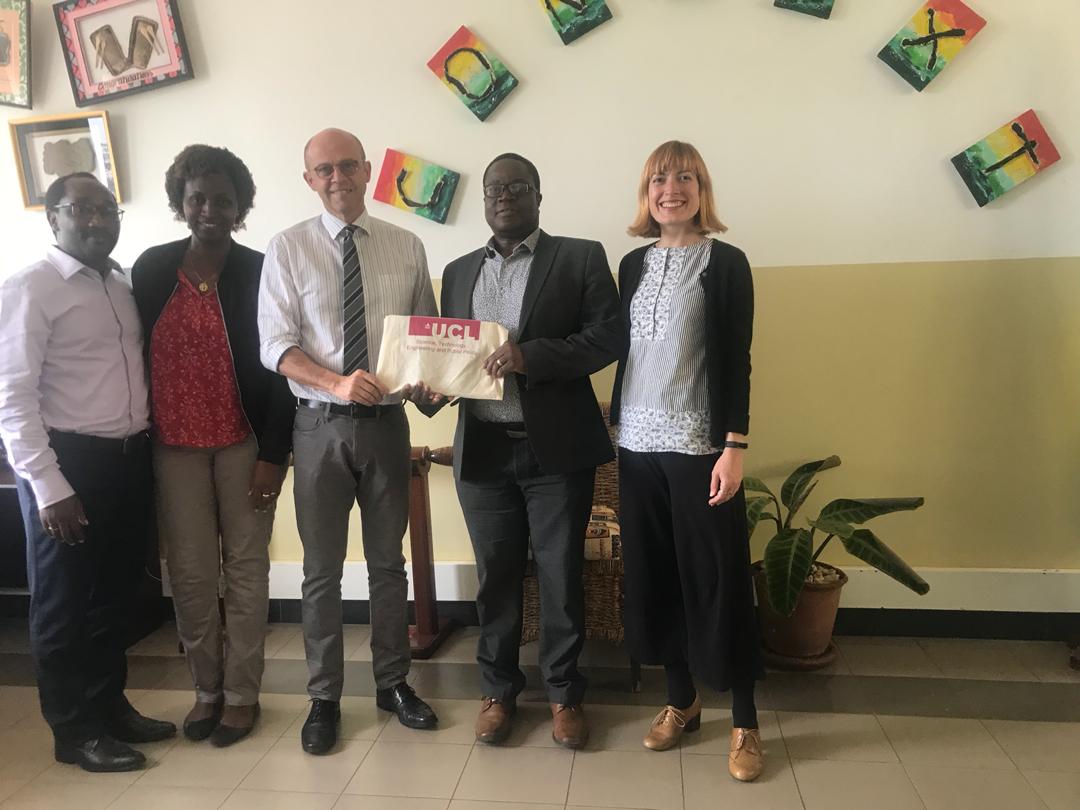
UR-Sweden Symposium showcases innovation-driven solutions to Rwanda’s pressing challenges
- 13-06-2025
- 419
The University of Rwanda’s College of Arts and Social Sciences and the University College London (UCL) Department of Science, Technology Engineering and Public Policy(UCL STEaPP) have been involved in an assessment of the role of the Science Granting Councils Initiative (SGCI) in strengthening science, research and innovation systems in nine African countries, including Rwanda. The other countries were Burkina Faso, Kenya, Malawi, Mozambique, Namibia, Senegal, Uganda and Zambia.UR hosted the project inception meeting in September 2019, with participation from UCL and UR academics, representatives from key institutions in Rwanda’s national science ecosystem as well as UR. The assessment, which contributes to the SGCI’s on-going monitoring, evaluation and learning (MEL) function, was commissioned after a competitive bidding process from which the UR-UCL partnership was selected. The SGCI is a multi-funder initiative launched in 2015 with the overall goal of strengthening the capacities of national science granting councils (SGCs) in 15 participating sub-Saharan African countries through support for research and evidence-based policies that contribute to the social and economic development goals of the countries.
The 10-month assessment, called the SGCI Training Effectiveness Case Studies (STECS) Project, explored the extent to which training, knowledge products and other forms of support from the SGCI have strengthened among others research management, public-private partnerships, gender and inclusivity issues and science ecosystems broadly within the 9 countries which participated in the study. The project also explored adjustments that would be necessary for the funding agency (SGCI) and beneficiaries in 9 countries to make training and capacity strengthening activities more effective.Using desk research and semi-structured interviews with the SGCs, SGCI partners and other key stakeholders, the study identified evidence in support of the contribution and influence of SGCI’s work in key areas of national science and innovation agendas. For instance, a combination of trainings, peer-to-peer and learning visits has enabled the Councils from Kenya (NRF), Mozambique (FNI) and Rwanda (NCST) to improve their grants management systems. The countries are at various stages in developing and implementing different components of their science systems, for example online grants management systems and uses of science, technology and innovation (STI) in national planning.

The moment STECS project team paid a courtesy visit to Prof. Phil Cotton (in the middle), the UR Vice Chancellor
An online end of project workshop was jointly hosted by UCL and UR at the end of June, to present the main findings of the work. These main findings will be published as a project report, currently being finalised, at least two peer-reviewed journal articles and policy briefs for use by scholars, policy makers, development partners and other relevant stakeholders with interest in science, technology, innovation, research management and public policy.
The STECS project team consists of Principal Investigator Dr Julius Mugwagwa, Associate Professor at UCL, Dr Anne Marie Kagwesage, Co-Investigator and Senior Lecturer at UR, Dr Carla-Leanne Washbourne Co-Investigator and Associate Professor at UCL, and Remy Twiringiyimana, a PhD candidate at UCL. In their reflection, ‘persistent societal challenges in many sectors and the current Covid-19 pandemic reiterate the importance of adequately funded and relevant science systems in African countries. Strong research management, partnerships and knowledge exchange are all vital for ensuring that SGCs can play their role in contributing to societal development and response to challenges’. The project has so far produced two blogs based on the STECS project, namely : COVID-19 : How much do local science system capabilities matter in Africa ; and Science-as-unusual in a post-COVID-19 pandemic world ?
Meanwhile following on from the STECS Project, the UR and UCL partnership is currently in the process of conducting a short second study dubbed “STECS Plus”, which is focusing on countries’ experiences and how capacities developed in SGCs through the SGCI have informed and contributed to national responses to Covid-19.